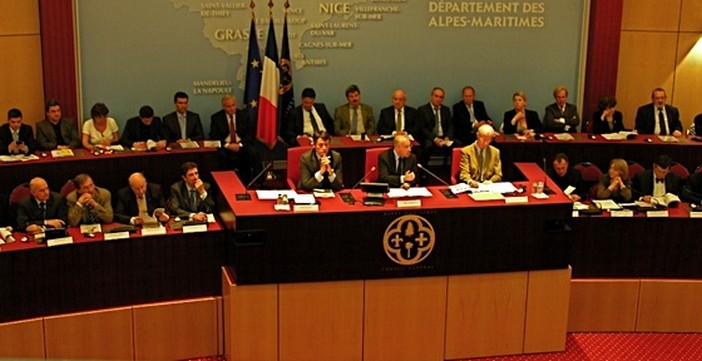With an overwhelming majority (50 elected officials out of 54), a good manager—which ranks him among the top 5 departments at the national level—clever enough to manage the residual opposition by letting a few drops flow to their benefit, Eric Ciotti could limit himself to swiftly handling the agenda without any difficulty during public sessions of the Departmental Council.
But no, for reasons only the good old Doctor Freud might explain, on every occasion, he feels compelled to begin with extravagant preambles to criticize government policy.
One could overlook issues within the scope of State authority, for which he has held a preferential option for a long time—some might say it’s more of an obsession—and which forms the basis of his profile as a national-level politician with ministerial ambitions.
But yesterday, during a session whose main item was the approval of the management and administrative accounts for 2014, we witnessed a half-populist, half-rhetoric plea against the government’s overall policy, whether from an economic, budgetary, or fiscal perspective, not to mention immigration and Islamic radicalization.
Are these convictions or convenient positions? Given the severity of the analysis and the dramatization of the conclusions, “France is broken,” one could side with Minister Madame Toubira in her doubts: “Do you really believe what you say?”
And of course, it is certainly not the criticisms (…just for show) from the opposition that will make the author change his mind and behavior, to whom he reserves his caustic mood.
The administrative accounts for the year 2014 were thus approved by the departmental majority: the turnover was 1,264 million euros, almost stable (+19 M€ compared to 2013). Operating expenses remained stable at 932 M€, investments close to 150 million, and debt servicing at 89 M€.
The debt itself reached 901 M€ (879 M€ in 2013).
These key figures clearly show that merely controlling costs and efficiency (controlling social action to prevent social fraud) in spending is not enough or no longer enough to cope with the social policies for which the department is responsible.
These management and administrative accounts were voted on by the majority with the abstention or dissenting vote of two pairs of elected officials.
Among the routine deliberations, one deserves attention: the one that awards monetary prizes to young students for merit and excellence: 900 euros to higher education students, 200 euros for winners of the national competition, and 100 euros for those in the departmental competition for Young Apprentices; and also 100 euros to the first two prizewinners from the Nice academic Olympiads.
This is well done and very commendable. However, promoting the excellence of young people with 100, 200, or 900 € seems like a rather obvious ploy: if it were that simple, it would be well-known…


